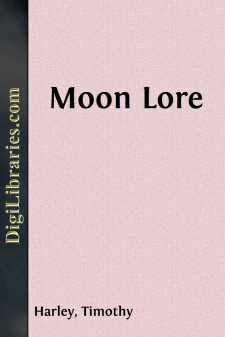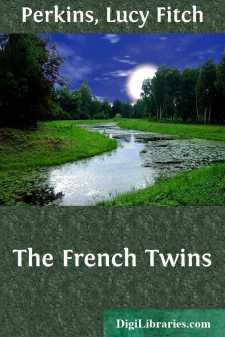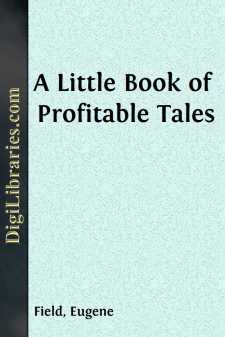Fiction
- Action & Adventure 183
- Biographical 15
- Christian 59
- Classics 6965
- Coming of Age 5
- Contemporary Women 3
- Erotica 8
- Espionage/Intrigue 12
- Fairy Tales, Folklore & Mythology 236
- Family Life 169
- Fantasy 117
- Gay 1
- General 596
- Ghost 32
- Historical 808
- Horror 43
- Humorous 161
- Jewish 25
- Legal 4
- Medical 22
- Mystery & Detective 315
- Occult 1
- Political 49
- Psychological 41
- Religious 64
- Romance 160
- Sagas 11
- Science Fiction 730
- Sea Stories 113
- Short Stories (single author) 538
- Sports 10
- Suspense 1
- Technological 8
- Thrillers 2
- Urban Life 31
- Visionary & Metaphysical 1
- War & Military 173
- Westerns 199
Fiction Books
Sort by:
by:
Ridgwell Cullum
CHAPTER I Murray McTavish was seated at a small table, green-baized, littered with account-books and a profusion of papers. But he was not regarding these things. Instead, his dark, intelligent eyes were raised to the smallish, dingy window in front of him, set in its deep casing of centuries-old logs. Nor was the warm light shining in his eyes inspired by the sufficiently welcome sunlight beyond. His...
more...
by:
Jackson Gregory
THE TRAGEDY Here was a small stream of water, bright, clear and cool, running its merry way among the tall pines, hurrying to the dense shade of the lower valley. The grass on its banks stood tall, lush and faintly odorous, fresh with the newly come springtime, delicately scented with the thickly strewn field flowers. The sunlight lay bright and warm over all; the sky was blue with a depth of colour...
more...
by:
Timothy Harley
MOON SPOTS. I. INTRODUCTION. With the invention of the telescope came an epoch in human history. To Hans Lippershey, a Dutch optician, is accorded the honour of having constructed the first astronomical telescope, which he made so early as the 2nd of October, 1608. Galileo, hearing of this new wonder, set to work, and produced and improved instrument, which he carried in triumph to Venice, where...
more...
by:
Roger D. Aycock
They had fled almost to the sheer ambient face of the crater wall when the Falakian girl touched Farrell's arm and pointed back through the scented, pearly mists. "Someone," she said. Her voice stumbled over the almost forgotten Terran word, but its sound was music. "No matter," Farrell answered. "They're too late now." He pushed on, happily certain in his warm...
more...
by:
Sax Rohmer
THE PHANTOM SCIMITAR I was not the only passenger aboard the S.S. Mandalay who perceived the disturbance and wondered what it might portend and from whence proceed. A goodly number of passengers were joining the ship at Port Said. I was lounging against the rail, pipe in mouth, lazily wondering, with a large vagueness. What a heterogeneous rabble it was!—a brightly coloured rabble, but the colours...
more...
by:
Charles Dickens
CHAPTER 1 Night is generally my time for walking. In the summer I often leave home early in the morning, and roam about fields and lanes all day, or even escape for days or weeks together; but, saving in the country, I seldom go out until after dark, though, Heaven be thanked, I love its light and feel the cheerfulness it sheds upon the earth, as much as any creature living. I have fallen insensibly...
more...
I. THE CHURCH AND THE PEOPLE The sunlight of the clear September afternoon shone across the roofs of the City of Rheims, and fell in a yellow flood upon the towers of the most beautiful cathedral in the world, turning them into two shining golden pillars against the deep blue of the eastern sky. The streets below were already in shadow, but the sunshine still poured through the great rose window above...
more...
by:
Eugene Field
THE FIRST CHRISTMAS TREE Once upon a time the forest was in a great commotion. Early in the evening the wise old cedars had shaken their heads ominously and predicted strange things. They had lived in the forest many, many years; but never had they seen such marvellous sights as were to be seen now in the sky, and upon the hills, and in the distant village. "Pray tell us what you see," pleaded...
more...
by:
Irving Bacheller
CHAPTER I Near the end of my fourteenth year I was apprenticed to Valentine, King & Co., cotton importers, Liverpool, as a "pair of legs." My father had died suddenly, leaving me and his property in the possession of my stepmother and my guardian. It was in deference to their urgent advice that I left my home in London (with little reluctance, since my life there had never been happy) to...
more...
by:
Gilbert Parker
"What has thee come to say?" Sitting in his high-backed chair, Luke Claridge seemed a part of its dignified severity. In the sparsely furnished room with its uncarpeted floor, its plain teak table, its high wainscoting and undecorated walls, the old man had the look of one who belonged to some ancient consistory, a judge whose piety would march with an austerity that would save a human soul by...
more...











